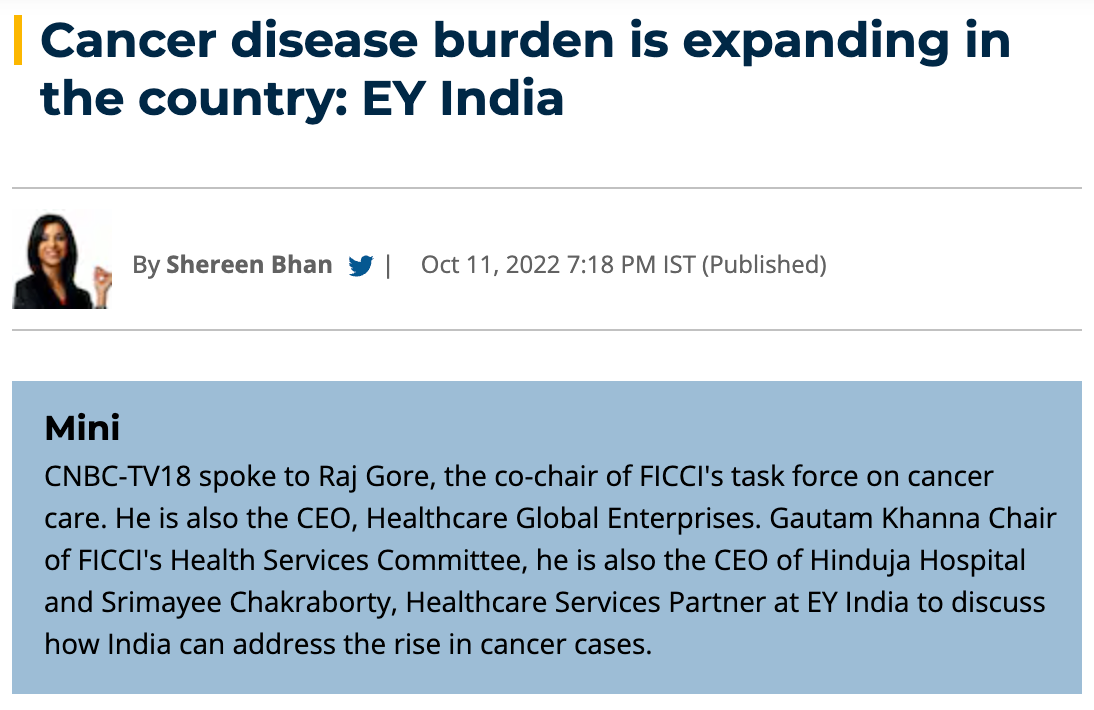CNBC-TV18 spoke to Raj Gore, the co-chair of FICCI’s task force on cancer care. He is also the CEO, Healthcare Global Enterprises. Gautam Khanna Chair of FICCI’s Health Services Committee, he is also the CEO of Hinduja Hospital and Srimayee Chakraborty, Healthcare Services Partner at EY India to discuss how India can address the rise in cancer cases.
Every year, cancer kills at least 10 lakh Indians. This year, India could record at least 20 lakh cancer incidences. However, the real number could be two to three times higher, according to a study by EY and FICCI.
In fact, late-stage detection is the true killer, and the lack of awareness and screening continues cause deaths, which could otherwise be prevented.
Only one out of two Indians are concerned about cancer. It’s no surprise that nearly 30 percent of adults continue to consume tobacco, which causes one out of three cancers in India. Obesity and alcohol consumption are the other major causes of cancer.
Now, India only screens five percent of its population for cancers, which is negligible when compared with its global peers. When developed countries have three PET-CT scanners per million people, India does not even have one.
In cancer care, India does poorly, with only 2 percent of the population having any access to palliative care compared to 14 percent globally. Most of these comprehensive cancer centers are located in metro cities. Our healthcare system needs twice the number of oncologists it currently has, and the same goes for radiotherapy centres.
As we tackle the issue of ignorance and early detection, we also need to make curing cancer affordable. It’s nearly three times the cost of treatment for other diseases. At present, cancer-related hospitalisation is out of reach for 80 percent of India’s population. Economically speaking, the potential productive life lost to cancer could result in a GDP loss of nearly 40 billion annually by the end of this decade.
To discuss how India can address the rise in cancer cases, CNBC-TV18 spoke to Raj Gore, Co-chair of FICCI’s task force on cancer care and CEO, Healthcare Global Enterprises; Gautam Khanna, Chair of FICCI’s Health Services Committee and CEO of Hinduja Hospital; and Srimayee Chakraborty, Healthcare Services Partner, at EY India.
Chakraborty said, “The cancer disease burden is expanding in the country and the cumulative risk of developing cancer of any organ is one in six to one and 12 among the urban population of the country.”
She added, “What we are also seeing is a very severe late-stage detection, which is due to the poor penetration of screening programs, as well as the lack of awareness. Now, while these are the issues from the demand side, if we have to characterise the supply side of the situation, there is lack of penetration of comprehensive and affordable cancer care in the country.”


